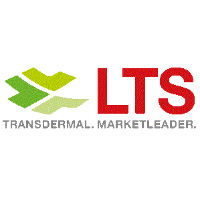预约演示
更新于:2025-06-11

Beijing Mengdi Pharmaceutical Co. Ltd.
更新于:2025-06-11
概览
标签
免疫系统疾病
血液及淋巴系统疾病
肿瘤
小分子化药
疾病领域得分
一眼洞穿机构专注的疾病领域
暂无数据
技术平台
公司药物应用最多的技术
暂无数据
靶点
公司最常开发的靶点
暂无数据
| 排名前五的药物类型 | 数量 |
|---|---|
| 小分子化药 | 2 |
| 排名前五的靶点 | 数量 |
|---|---|
| GR x β2-adrenergic receptor | 1 |
| DHFR(二氢叶酸还原酶) | 1 |
关联
2
项与 萌蒂(中国)制药有限公司 相关的药物作用机制 GR激动剂 [+1] |
在研机构 |
在研适应症 |
最高研发阶段批准上市 |
首次获批国家/地区 澳大利亚 |
首次获批日期2013-06-14 |
靶点 |
作用机制 DHFR抑制剂 |
最高研发阶段批准上市 |
首次获批国家/地区 美国 |
首次获批日期2009-09-24 |
28
项与 萌蒂(中国)制药有限公司 相关的临床试验CTR20250056
评估受试制剂盐酸羟考酮缓释片(规格:10 mg)与参比制剂(奥施康定®)(规格:10 mg)在中国成年慢性疼痛参与者空腹和餐后状态下的多中心、开放、随机、单剂量、两周期、两序列、交叉生物等效性试验
主要试验目的:研究空腹和餐后状态下单次口服受试制剂盐酸羟考酮缓释片(规格:10 mg,萌蒂(中国)制药有限公司生产)与参比制剂盐酸羟考酮缓释片(奥施康定®,规格:10 mg;BARD PHARMACEUTICALS LIMITED生产)在成年慢性疼痛参与者体内的药代动力学特征,评价空腹和餐后状态口服两种制剂的生物等效性。
次要试验目的:研究受试制剂盐酸羟考酮缓释片(规格:10 mg)和参比制剂盐酸羟考酮缓释片(奥施康定®)(规格:10 mg)在成年慢性疼痛参与者中的安全性。
开始日期2025-02-16 |
申办/合作机构 |
CTR20250054
评估受试制剂盐酸羟考酮缓释片(规格:40 mg)与参比制剂(奥施康定®)(规格:40 mg)在中国成年慢性疼痛参与者空腹和餐后状态下的单中心、开放、随机、单剂量、两周期、两序列、交叉生物等效性试验
主要试验目的:研究空腹和餐后状态下单次口服受试制剂盐酸羟考酮缓释片(规格:40 mg,萌蒂(中国)制药有限公司生产)与参比制剂盐酸羟考酮缓释片(奥施康定®,规格:40 mg;BARD PHARMACEUTICALS LIMITED生产)在成年慢性疼痛参与者体内的药代动力学特征,评价空腹和餐后状态口服两种制剂的生物等效性。
次要试验目的:研究受试制剂盐酸羟考酮缓释片(规格:40 mg)和参比制剂盐酸羟考酮缓释片(奥施康定®)(规格:40 mg)在成年慢性疼痛参与者中的安全性。
开始日期2025-02-14 |
申办/合作机构 |
CTR20182192
一项在阿片经治的中重度慢性癌痛中国受试者中评价丁丙诺啡透皮贴剂相比硫酸吗啡缓释片疗效和安全性的研究
主要目的: 根据简明疼痛调查表-简表(BPI-SF)(Cleeland& Ryan, 1994)以数字评分法(NRS,0-10)评估的过去24小时平均疼痛评分,证实丁丙诺啡透皮贴剂(BUP TDS)治疗慢性癌痛的疗效非劣效于硫酸吗啡缓释片(MOR SR)。
开始日期2019-06-10 |
申办/合作机构 |
100 项与 萌蒂(中国)制药有限公司 相关的临床结果
登录后查看更多信息
0 项与 萌蒂(中国)制药有限公司 相关的专利(医药)
登录后查看更多信息
22
项与 萌蒂(中国)制药有限公司 相关的新闻(医药)2025-05-29
·药事纵横
5月28日,国家药品监督管理局药品审评中心(CDE)正式受理了麓鹏制药自主研发的第四代BTK抑制剂洛布替尼片(Rocbrutinib)的新药上市申请(NDA),并将其纳入优先审评程序。该药拟用于治疗既往接受过布鲁顿氏酪氨酸激酶(BTK)抑制剂治疗的成人套细胞淋巴瘤(MCL)患者。若顺利获批,洛布替尼有望成为中国首个针对该适应症的国产BTK抑制剂,为耐药患者群体带来全新治疗选择。图源:CDE官网破解MCL耐药困局套细胞淋巴瘤(MCL)是一种特殊类型的B细胞非霍奇金淋巴瘤(NHL),约占成人NHL的2.5%-6%。这种疾病兼具侵袭性淋巴瘤进展迅速和惰性淋巴瘤不可治愈的特点,治疗中表现为反复复发。随着治疗线数的增多,患者的缓解率、缓解深度和缓解持续时间均明显缩短,甚至逐渐出现耐药。中国MCL的发病率约为六十二万分之一,男性发病率略高于女性,中位发病年龄约为60岁。随着人口老龄化加剧,中国MCL发病率呈上升趋势。对于BTK抑制剂耐药的患者,后续治疗选择有限,预后极差,这一领域存在高度未被满足的医疗需求。BTK抑制剂治疗MCL疗效明确。目前已获批的共价结合BTK抑制剂已在临床实践中被广泛应用,成为国内外复发或难治性(R/R)MCL的标准治疗方案。但经共价结合BTK抑制剂治疗后的MCL患者,疾病仍将复发,患者生存期很短。第四代BTK抑制剂的突破洛布替尼(研发代号:LP-168)是麓鹏制药自主研发的全球首个第四代共价兼非共价BTK抑制剂。这一创新药物不仅能克服多种由BTK突变导致的对第一、二、三代BTK抑制剂的耐药,而且具有极高的活性和优异的靶点选择性,有望成为一款同类最佳(Best-in-Class)的BTK抑制剂。洛布替尼的独特之处在于其“双作用机制”。该药物既可通过共价键与野生型BTK抑制剂结合,不可逆抑制BTK的活性;当BTKC481位点发生耐药突变后,又能以非共价的形式可逆性与BTK结合抑制后者的活性。特别是在一线使用时,由于洛布替尼可逆结合BTKC481突变,从而阻挡通过C481突变获得性耐药这条主要通路,继而显著增强其疗效,延长患者的无进展生存期(PFS)。在药物设计上,研发团队通过引入特殊化学结构,使药物在没有发生突变的情况下优先与共价结合位点结合,大幅提高了药物的疗效和安全性。与现有BTK抑制剂相比,洛布替尼在细胞水平上的活性提高了十几倍,靶点选择性更加特异精准,药代动力学特性也更加优越。本次NDA申请是基于一项在中国开展的二期关键性注册临床研究(CTR20230100)结果。该研究旨在评估洛布替尼单药用于复发或难治(R/R)MCL患者的疗效及安全性,此项研究的结果将于今年9月在中国临床肿瘤学会(CSCO)学术年会上正式公布。早期临床数据已展现出洛布替尼的卓越潜力。在2023年美国血液学会(ASH)年会上,麓鹏制药公布了洛布替尼I期临床研究(CTR20211173)中R/RMCL队列的阶段性数据。在17例既往接受过BTK抑制剂治疗的患者中,有12例获得缓解,客观缓解率(ORR)高达70.6%,且包含6例(35.3%)达到完全缓解(CMR/CR)。这一数据在耐药患者群体中尤为亮眼。在2024年ASH年会上更新的数据显示,在29例可评估的复发或难治性边缘区淋巴瘤(MZL)患者中,中位随访时间10.9个月,72.4%的患者获得缓解,包括10.3%的完全缓解(CR)率。在高度治疗的non-GCBDLBCL患者中也表现出高完全缓解率和总体缓解率,且安全性良好。突破性治疗认定的扩展潜力除了套细胞淋巴瘤适应症,洛布替尼在非生发中心型弥漫大B细胞淋巴瘤(non-GCBDLBCL)治疗领域也展现出突破性潜力。2024年5月,洛布替尼被CDE纳入突破性治疗品种名单,成为中国首个被认定为DLBCL突破性疗法的BTK抑制剂,也是全球唯一一个在DLBCL适应症上获得突破性疗法认定的BTK抑制剂。弥漫大B细胞淋巴瘤(DLBCL)是非霍奇金淋巴瘤(NHL)中最常见的一种病理类型,在我国约占35%-50%,其中non-GCB型DLBCL约占60%。DLBCL中位发病年龄为50-70岁,疾病侵袭性强、进展快、肿瘤异质性大。目前治疗手段为免疫化疗或序贯干细胞移植,但对于大多数复发/难治性DLBCL患者来说,疾病仍不能被治愈,特别是经多线治疗的复发/难治患者,即使使用新药预后仍极差。基于这一突出疗效,CDE近期批准了洛布替尼针对复发/难治non-GCBDLBCL适应症的关键性注册II期临床研究。麓鹏制药的研发布局麓鹏制药成立于2018年6月,专注于研发治疗恶性肿瘤和自身免疫性疾病的创新药,重点针对血液肿瘤BTK、Bcl-2和Bcl-xL等关键靶点。公司拥有超过10个品种的研发管线,其中核心项目洛布替尼、LP-108和LP-118均具有世界一流竞争力,目标定位全球市场。公司董事长、CEO兼CMO谭芬来博士曾是贝达药业的联合创始人,成功主导多个新药的临床开发和注册申报,包括中国第一个小分子靶向药埃克替尼(Icotinib)。首席科学家陈怡博士也是一位连续创新创业者,曾成功开发一款针对HDAC和DNA双靶标创新药物EDO-S101(Tinostamustine),该药物曾在2013年以8400万美元授权给跨国药企萌蒂(Mundipharma)。2024年1月,翰森制药就洛布替尼签署合作协议,获得非肿瘤适应症在中国的权益,交易总额高达7.29亿元人民币。这一合作不仅验证了洛布替尼的潜在价值,也为麓鹏制药提供了重要的资金支持。随着洛布替尼上市申请获得受理,麓鹏制药迎来了重要里程碑。洛布替尼的价值不仅限于套细胞淋巴瘤,该药单药或联合用药方案用于治疗多种B细胞淋巴瘤的临床研究正在中美同步开展中。在复发或难治性慢性淋巴细胞白血病/小淋巴细胞淋巴瘤(CLL/SLL)、边缘区淋巴瘤(MZL)、华氏巨球蛋白血症(WM)等多种B细胞恶性肿瘤的治疗中,洛布替尼均表现出优异的疗效、安全性和药代动力学特性,支持每日一次的口服给药方式。临床数据表明,无论是对未经BTK抑制剂治疗的初治患者,还是对已经共价或第三代非共价BTK抑制剂耐药的B细胞淋巴瘤患者,洛布替尼均显示了优异的临床疗效和突破性的临床价值,刷新了BTK抑制剂疗效的新高度。同时,中国创新药生态环境的持续优化和审评审批制度的不断完善,以洛布替尼为代表的中国原研创新药正加速走向临床,为全球患者提供更多“中国方案”。信息来源:[1]https://news.qq.com/rain/a/20250528A065YO00[2]https://caifuhao.eastmoney.com/news/20250528142839431054720[3]CDE官网药事纵横投稿须知:稿费已上调,欢迎投稿
优先审批临床2期临床1期申请上市引进/卖出
2025-04-15
2025年4月15日至21日,是第31个全国肿瘤防治宣传周。今年的防治周以“科学防癌 健康生活”为主题,再次呼唤全社会对癌症的关注。“科学防癌,健康生活”倡导通过全过程全生命周期的健康管理,满足大众的健康需求,保障百姓的健康生活,具体包含以下三点1。(预防)▪ 普及癌症防治科学知识,倡导群众践行健康生活方式;(治疗)▪ 鼓励高风险人群主动参加癌症筛查,早诊早治;▪ 指导癌症患者及时接受规范化诊疗,并定期复查。在对抗癌症的过程中,还有一点不容忽视:癌症的疼痛管理。首先要消除这样的误区:疼痛不是病,忍忍就过去了;如果我和医生说“疼”,是否他们就会关注疼痛,而忽略我的癌症治疗呢? ……根据全球CANCER TODAY网站披露的数据显示2:2022年我国共计新增癌症病例约482万,占全球24.1%。另有研究数据显示:59% 接受抗癌治疗的患者、64% 晚期/转移性癌症患者以及 33% 完成根治性治疗的患者,都报告有中到重度疼痛3。而最早版的WHO癌痛管理指南已指出,镇痛药物如果使用得当,90%以上的患者的疼痛能够得到控制4。“同心协力 服务患者”是我们的企业使命;“以患者为核心”是萌蒂的行为准则;为医疗卫生专业人士提供学术支持,更好地服务中国患者是我们的承诺;“规范化全程管理”是我们倡导的学术理念。因为我们相信,疼痛管理的核心不仅是缓解症状,更是帮助患者回归生活。值此全国肿瘤防治宣传周,我们呼吁:癌痛管理和癌症管理一样,同样需要: 早筛查:疼痛是身体发出的信号,及时评估才能科学干预。 早治疗:规范用药可显著提升患者生活质量,无需隐忍或恐惧。 早回归:缓解疼痛治疗可以让患者保有尊严,重拾对生活的热爱。 支持文献:1.《国家卫生健康委办公厅发布的关于开展2025年全国肿瘤防治宣传周活动的通知》,2025年3月31日2.https://gco-iarc-who-int.libproxy1.nus.edu.sg/media/globocan/factsheets/populations/160-china-fact-sheet.pdf3.Kwon JH. Overcoming barriers in cancer pain management. J Clin Oncol. 2014 Jun 1;32(16):1727-33.4. WHO. Cancer Pain relief. 1986.
临床研究
2025-04-14
新华网北京4月14日电(孙慧)4月10日,由新华网主办、中国外商投资企业协会药品研制和开发工作委员会(RDPAC)协办,中国社区卫生协会支持的“2025年全民健康素养促进行动启动会”在北京举行。期间,RDPAC执行委员会成员、萌蒂中国董事会执行主席邢军在接受新华网采访时表示,疼痛作为人类第五大生命体征,在中国常被忽视,许多人认为“忍忍就过去”了,这会耽误患者的治疗。邢军强调,破解这一困局需多方协同,而萌蒂中国作为深耕疼痛管理领域32年的企业,将持续引入国际先进镇痛技术和产品,协助提升基层医院的服务能力,助力提高患者的生活质量。新华网:中国人对于疼痛的认知往往是,疼痛不是病,忍忍就过去了。即使就医,他们关注的也往往不是疼痛,而是背后的疾病。您如何分析这种现象?邢军:在我看来,这种错误认知主要反映了以下三点问题:首先,错误观点的传承性。中国的老百姓对于疼痛作为一种疾病的知晓率极低,正是这种观念的代代相传,使得许多人在面对疼痛时选择了默默忍受,而不是寻求专业的医疗帮助。第二,对疼痛治疗领域的认知不足。据介绍,我国慢性疼痛患者超过3亿,并且每年增加约2000万名患者。随着社会老龄化程度的不断加剧,疼痛已成为继心脑血管疾病、肿瘤之后,我国面临的又一类新的健康问题。据相关数据显示,我国的疼痛诊疗呈现出“三低”现象,即疼痛的知晓率低,仅为14.3%;就诊率低,不足60%;完全缓解率低,低于20%。这一现象的背后,暴露出我国基层医疗机构疼痛管理能力薄弱,医生对于疼痛的整体认知程度不高,疼痛专科医生总体数量匮乏,难以满足庞大的患者需求。第三,医保政策的引导作用。部分慢性疼痛的报销比例偏低,相关常见病种(例如:骨关节炎、带状疱疹后遗神经痛等)没有纳入到门诊慢性和门诊特殊疾病(简称“门慢门特”)的报销中,直接影响了老百姓主动关注疼痛、治疗疼痛的意愿。新华网:您认为如何才能有效解决疼痛管理中的问题?邢军:要想有效解决疼痛管理中的以上问题,我认为需要汇聚社会多方力量,包括政府、医生、学协会、媒体以及企业等,大家携手共进,形成合力,才能真正实现今天我们大会活动所倡导的“提升全民健康素养”的目标。在公众教育方面,应充分发挥知名医生与媒体的作用,通过科普宣传来改变公众对于疼痛的错误认知。疼痛作为人类的第五大生命体征,理应得到与血压、心跳、呼吸、体温一样的重视。同时需要引导公众认识到,疼痛需要科学化的管理,对患者及家属开展疼痛自我评价知识的科普工作至关重要。此外,通过分享真实案例,如疼痛患者生活质量提升的故事,来增强公众对疼痛管理的认识。可以充分借助微信公众号、短视频平台、线上直播、社区科普等多种形式,来帮助公众,逐步提升他们对疼痛管理的科学认知。在政策倡导方面,需要从多个维度入手,推动疼痛管理工作的全面发展。推动医疗公平:建立疼痛专科医联体,通过远程医疗实现资源下沉,让基层医疗单位具备疼痛管理能力,从而减少地域间诊治水平的差异。提升医保报销水平、增加药物可及性:将更多慢性疼痛病种纳入门慢门特报销,提升疼痛管理药物的可及性;设立居家安宁疗护用药机制,让患者能够无痛、尊严地度过生命终末期。深入疼痛管理工作的开展:国家卫生健康委已经出台一系列文件推动疼痛管理发展。2022年,颁布了《疼痛综合管理试点工作方案》,2023年发布了《关于开展改善就医感受提升患者体验主题活动的通知》。截至2024年,已遴选了500家疼痛管理试点单位。同时为了推动癌症晚期病人的管理,也陆续启动了安宁疗护试点工作。赋能患者自我管理:鼓励医院推广APP、小程序等工具,帮助患者进行居家的疼痛记录、用药提醒和健康科普,让患者成为自身健康的第一责任人。新华网:萌蒂中国在协助推动疼痛管理工作发展方面采取了哪些具体行动?邢军:我们主要通过以下几方面,以实际行动全力协助推动中国疼痛管理工作的发展。首先,全面引入国际创新技术与产品。包括在政府的协助下,将核心产品的缓释技术通过战略转移引入中国市场,实现原研产品的国产化,做到“In China,For China”(植根中国,服务中国)。同时,我们刚刚有一款全新疼痛管理产品上市,这款产品通过创新的释放技术,在缓解患者疼痛的同时,有效提高患者的生活质量。其次,通过上下联动,协助三级示范医院帮助基层医院提升患者服务能力。一方面我们增加重点地区、重点医院的学术投入,满足学术高地的医生们更强的学术诉求;另一方面,将三级医院的先进治疗理念带到区域以及基层医院,辐射、惠及更多的患者。此外,我们还与全国各级商业合作伙伴共同努力,提升广阔市场的药物可及性。还有,在医学教育领域,我们成立了疼痛护士教育团队,支持护士,帮助患者无论在医院还是居家,都能落实科学的疼痛管理,有效提高他们的生活质量。*本文转载自新华网客户端作者:孙慧责任编辑:逦琛
100 项与 萌蒂(中国)制药有限公司 相关的药物交易
登录后查看更多信息
100 项与 萌蒂(中国)制药有限公司 相关的转化医学
登录后查看更多信息
组织架构
使用我们的机构树数据加速您的研究。
登录
或

管线布局
2025年11月02日管线快照
管线布局中药物为当前组织机构及其子机构作为药物机构进行统计,早期临床1期并入临床1期,临床1/2期并入临床2期,临床2/3期并入临床3期
临床3期
1
1
批准上市
其他
6
登录后查看更多信息
当前项目
| 药物(靶点) | 适应症 | 全球最高研发状态 |
|---|---|---|
丙酸氟替卡松/富马酸福莫特罗 ( GR x β2-adrenergic receptor ) | 哮喘 更多 | 批准上市 |
普拉曲沙 ( DHFR ) | 难治性外周T细胞淋巴瘤 更多 | 临床3期 |
丁丙诺啡 ( κ opioid receptor x μ opioid receptor ) | 慢性疼痛 更多 | 无进展 |
羟考酮 ( Opioid receptors ) | 癌症疼痛 更多 | 无进展 |
盐酸纳洛酮/盐酸羟考酮 ( Opioid receptors ) | 慢性疼痛 更多 | 无进展 |
登录后查看更多信息
药物交易
使用我们的药物交易数据加速您的研究。
登录
或

转化医学
使用我们的转化医学数据加速您的研究。
登录
或

营收
使用 Synapse 探索超过 36 万个组织的财务状况。
登录
或

科研基金(NIH)
访问超过 200 万项资助和基金信息,以提升您的研究之旅。
登录
或

投资
深入了解从初创企业到成熟企业的最新公司投资动态。
登录
或

融资
发掘融资趋势以验证和推进您的投资机会。
登录
或

生物医药百科问答
全新生物医药AI Agent 覆盖科研全链路,让突破性发现快人一步
立即开始免费试用!
智慧芽新药情报库是智慧芽专为生命科学人士构建的基于AI的创新药情报平台,助您全方位提升您的研发与决策效率。
立即开始数据试用!
智慧芽新药库数据也通过智慧芽数据服务平台,以API或者数据包形式对外开放,助您更加充分利用智慧芽新药情报信息。
生物序列数据库
生物药研发创新
免费使用
化学结构数据库
小分子化药研发创新
免费使用



